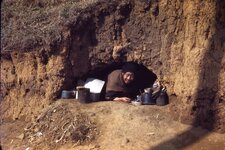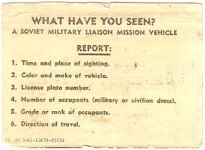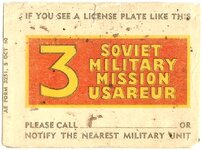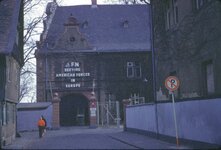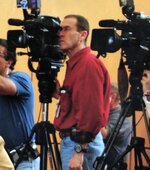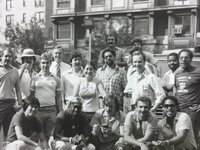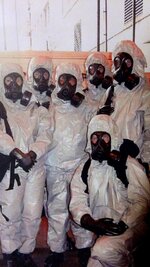manta22
Banned
The German press & politicians were too polite to embarrass JFK but it was clear that someone in his staff screwed up. When average Germans were snickering at that phrase it tells you something. I was there at Fliegerhorst when he said it. The press is re-writing history to conform to the way they wish it had happened... again.That actually is a very funny and popular myth, but myth none the less. JFK actually said it grammatically correct.
While you are correct that a Berliner is a jelly filled doughnut, it also means someone from Berlin. JFK did not actually say it wrong, it just has a double meaning.
"Ich bin ein Berliner" is grammatically correct for "I am a person from Berlin", i.e. "I am from Berlin."
For example, I am from Stuttgart, born and raised. I would say "Ich bin ein Stuttgarter."
Had he said "Ich bin Berliner," it would not have been grammatically correct.
Additionally, people in Berlin do not call the jelly donuts Berliners.
You can read more about here:
There is a widespread false belief that Kennedy made an embarrassing mistake by saying Ich bin einBerliner. By including the indefinite article "ein," he supposedly changed the meaning of the sentence from the intended "I am a citizen of Berlin" to "I am a Berliner" (a Berliner being a type of German pastry, similar to a jelly doughnut), amusing Germans throughout the city. However, this is incorrect from both a grammatical perspective and a historical perspective.
While the phrase "Ich bin ein Berliner" can be understood as having a double meaning, it is neither wrong to use it the way Kennedy did nor was it embarrassing. According to some grammar texts, the indefinite article can be omitted in German when speaking of an individual's profession or origin but is in any case used when speaking in a figurative sense.Furthermore, although the word "Berliner" has traditionally been used for a jelly doughnut in the north, west, and southwest of Germany, it has never been used in Berlin itself or the surrounding region, where the usual word is "Pfannkuchen" (literally "pancake"). Therefore, no Berliner would mistake Berliner for a doughnut.
A further part of the misconception is that the audience to his speech laughed at his supposed error. They actually cheered and applauded both times the phrase was used. They laughed and cheered a few seconds after the first use of the phrase when Kennedy joked with the interpreter: "I appreciate my interpreter translating my German."
The misconception appears to have originated in Len Deighton's 1983 spy novel Berlin Game, which contains the following passage, spoken by Bernard Samson:
In Deighton's novel, Samson is an unreliable narrator, and his words cannot be taken at face value. However, The New York Times' review of Deighton's novel appeared to treat Samson's remark as factual and added the detail that Kennedy's audience found his remark funny:
Four years later, it found its way into a New York Times op-ed:
The doughnut misconception has since been repeated by media such as the BBC (by Alistair Cooke in his Letter from America program), The Guardian, MSNBC, CNN, Time magazine, and The New York Times mentioned in several books about Germany written by English-speaking authors, including Norman Davies and Kenneth C. Davis; and used in the manual for the Speech Synthesis Markup Language. It is also mentioned in Robert Dallek's 2003 biography of Kennedy, An Unfinished Life: John F. Kennedy, 1917–1963.
Another reference to this misconception appears in David Foster Wallace's 1996 novel Infinite Jest, which contains the following passage:
In the Discworld novel Monstrous Regiment by Terry Pratchett, special envoy Sam Vimes, tasked with ending a war between the bellicose nation of Borogravia and an alliance of its aggrieved neighbours, intended to express his support for Borogravia by saying "I am a citizen of Borogravia" in its native language. However, Polly Perks, the main character, corrects him, saying he called himself a cherry pancake.
The jelly doughnut myth was largely unknown to Germans until the social web enhanced cross-cultural exchange in the 2000s. At the death of Robert Lochner in September 2003, German media retold the story on the creation of Kennedy's phrase without mentioning the myth,while on the same occasion English media still added the myth as fact, as for example the New York Times informed by Associated Press.
The German Historical Museum in Berlin opened an exhibition in 2003 without providing a hint to the myth either. The myth entered the German Wikipedia article "Ich bin Berliner" in May 2005 brought over from the English version where it had been discussed since the creation of the article in October 2001.It was already marked as an urban legend at the time in 2005. The German version settled on a section title "misconception in the english-speaking world" (Missverständnis im englischsprachigen Raum) by January 2007.
The Kennedy Museum in Berlin picked up the story in November 2008 debunking the myth, while an English article in Spiegel International about the opening of the museum in 2006 did quote the myth as fact. A reference to the myth in the national newspaper "Die Welt" as of July 2008 shows that the knowledge about the misconseption in the US was well understood by then, referencing Wikipedia in the text.
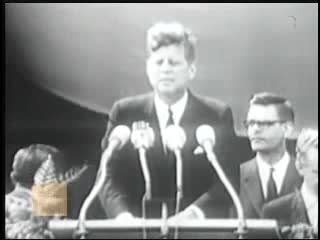
Ich bin ein Berliner - Wikipedia
en.m.wikipedia.org

